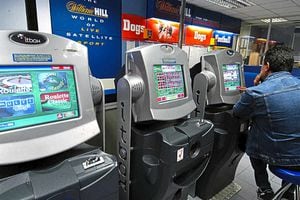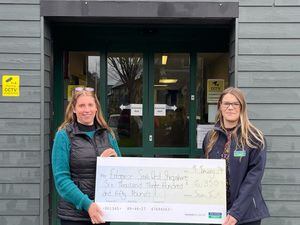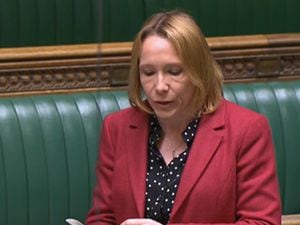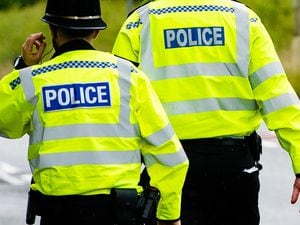Shropshire punters bet £40m in gaming spree
Gamblers pumped almost £40 million in high-stake betting machines across Shropshire and Mid Wales in just one year, it was revealed today.

A total of £39.45 million was put into just 179 fixed odds betting terminals in 49 licensed shops across the region last year.
The machines have been described as the "crack cocaine of gambling" because customers can spend up to £100 a minute.
Today MP Mark Pritchard urged the Government to take steps to control the spread of high-stakes gambling. He spoke out as the Campaign for Fairer Gambling released figures for our region.
The machines sit in betting shops and resemble traditional fruit machines. They lure players in by offering them winnings, but the majority of those playing "reinvest" those winnings and end up losing money.
Today's figures show that while about £40 million in cash was fed into machines in our region, more than £212 million was actually gambled in total at betting shops.
The gambling machines made more than £7.5 million in profit for bookmakers during 2014, the figures show.
The Campaign for Fairer Gambling says it wants to highlight the scale of the losses.
The machines offer a variety of games, ranging from casino games such as roulette, poker and black jack, to electronic slot games and virtual racing.
The Campaign for Fairer Gambling today demanded action, describing the figures for Shropshire and Powys as "alarming".
It wants the maximum stake on the terminals reduced to £2 a spin to bring them in line with all other gaming machines.
Campaign spokesman Adrian Parkinson said between 2002 and 2012 the number of UK terminals rose to more than 34,000 and the profit generated for bookmakers reached more than £1.4 billion.
Ladbrokes, William Hill and Coral make more than £900 per week profit from each roulette machine they operate, he added.
Mr Parkinson said: "The fact that almost £40 million has been pumped into these high-stake machines across Shropshire, Powys and Telford & Wrekin and £7.5 million lost shows the amount of money that is being taken away from the local economy.
"This money lines the pockets of big business stakeholders, it does not create jobs or boost the community. This high-stake gambling needs to be stopped and until we came along the industry has been getting away with it without criticism."
Initially, the machines were thought to be a grey area in UK law, because customers were betting on a "remote" event – such as the spinning of a roulette wheel in another part of the country.
But the 2005 Gambling Act, which also gave the go-ahead for "super casinos", formalised the legality of the machines allowing betting shops to have up to four of the terminals on their premises.
It is claimed that the machines now provide bookmakers with half of their income, and it is estimated that in some cases they provide bookies with up to 80 per cent of their profits.





